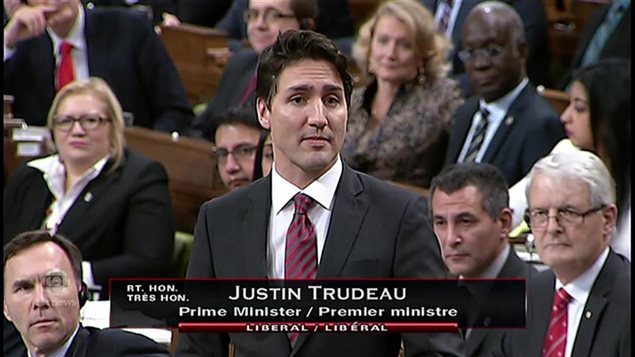It is a typical government policy, spend public funds to stimulate the economy. This almost always involves borrowing money and creating deficit budgets..i.e. spending more than the government takes in.
In a way, it’s like buying things with your credit card, eventually you have to pay it off, or keep paying the interest.
The Montreal Economic Institute (MEI) is a public policy think-tank focussing on educating the public on economic issues and also their relation to policy areas in education, health care, taxation, labour, etc.
Mathieu Bedard is an economist with the MEI and recently published a viewpoint saying that deficit spending is not a good idea.
Listen
Bedard is author of a paper called, “The Federal Government’s Deficits Will Not Stimulate the Canadian Economy”
While some economists say the government needs to spend to stimulate the economy, Bedard and the MEI disagree.
The present federal debt is approaching $700 billion, with about $26 Billion required annually just to pay the interest. The current spending by the federal Liberal government puts the deficit for this year at $18.4 billion dollars. That is not including plans for “infrastructure” payments.
Bedard says that Quebec’s austerity effort to deliver a balanced budget should serve as both and example and warning to the federal government about deficits, and trying to get back on track.
In a press release, Michel Kelly-Gagnon, President and CEO of the MEI, says “Returning to a zero deficit, even in periods of growth, is always a difficult exercise that invariably provokes an outcry. In other words, after a stimulus package, getting back to a balanced budget is not simply a matter of issuing a decree.”
Bedard notes that as Canada was not, and will not be in a recession a deficit budget to stimulate the economy is questionable at best.
He says, “In the aftermath of the 2008 financial crisis, it is the OECD countries that reduced both their public spending and their revenues that succeeded in achieving the fastest average annual growth. Conversely, countries that chose to increase both their spending and their tax burdens experienced very slow growth, and even economic contraction if Greece is included in the calculation. These facts, empirically demonstrated, directly contradict the doctrine of economists promoting deficits as tools of economic recovery.”
His recommendations to stimulate the economy are basic: reduce the obstacles to business and innovators by reducing taxes and the regulatory burden.







For reasons beyond our control, and for an undetermined period of time, our comment section is now closed. However, our social networks remain open to your contributions.